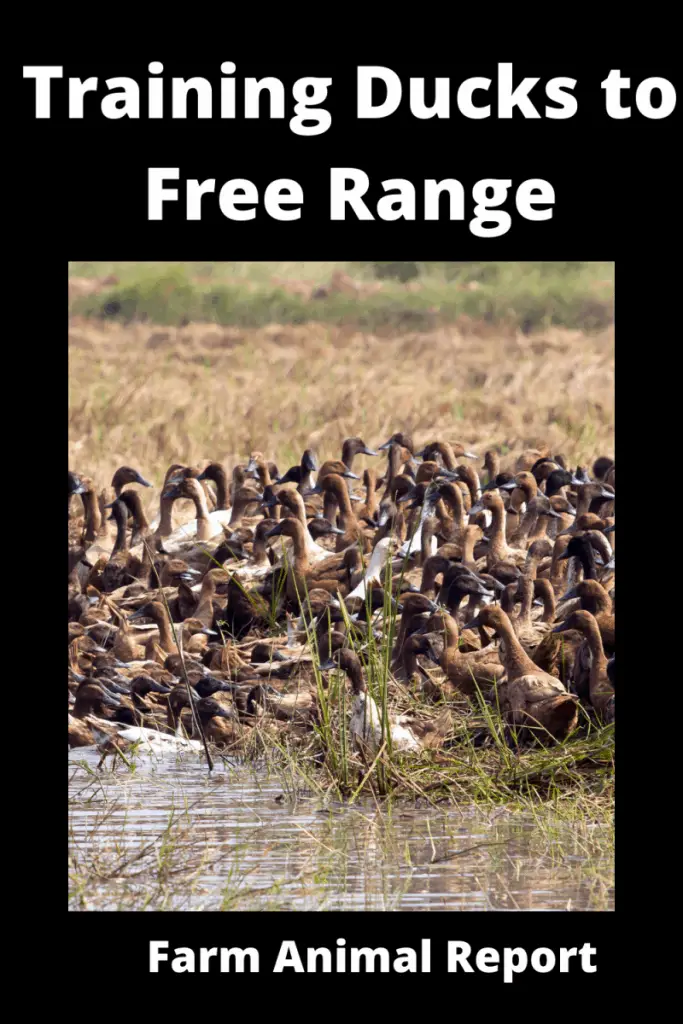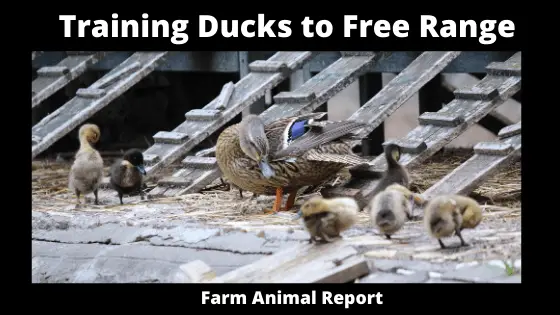Training Free Ranging Ducks
Training Free Ranging Ducks – Ducks are amazing animals to keep. Ducks seem to have a character all their own. They don’t need pampering, find a good portion of their food, eat insects, and weed seeds from the garden and can be very beautiful wandering around the backyard.
Although ducks are amazing animals, there are a few factors before making any commitment to keep them. They need proper care, a proper diet, and a large enclosure to feel safe. Ducks are similar to the chicken and they will seek a safe place to sit just before the dark. However, when new to the property, they may have some issues knowing where to go initially. Training Free Range Ducks
For further Research Check Out Amazons Books on Raising Ducks
It may be surprising, but ducks are quite trainable. By having the right motivation and a little patience, you can teach your pet ducks to free-range and then come back to their pens on their own.
They have the affection and become comfortable being petted and held, responding to their names if the bond develops. The main factor is to get used to specific conditioning techniques little by little until they begin adapting to them.
Many Backyard Homesteaders love to raise Free Range Ducks. The ducks are smart. They can be trained to
- Come to their name
- Jump to a reasonable height
- Return to their roost at night
- Lay Eggs in Nest Boxes
Many asked if ducks can be potty trained, but Ducks do not have sphincter / Butt / Anus muscles. When the feces comes they just drop it, where ever they are. No-Fault of their own just made that way.
Many Duck Pet Owners have been successful, in using duck diapers.
Encouraging Ducks to go to Free-Range (Free Range Ducks)
Keep New Ducks Restricted to Their Pens for One week.
Initially, place the new ducklings in their pens and let them more time there to get familiar with the cages and new surroundings. Before long, they will start to feel their cages as a safe shelter to return to.
However, it is necessary to have a setup large enough to house all the ducks you are planning to keep comfortably. A thumb rule to remember is to provide at least four square feet of space per duck.
Make the Ducks Pens Comfortable
The floor of the pens should have a thick layer of grass or straw to provide ducks with a cozy place to huddle. Set out types of equipment for quality duck feed and fresh, clean water and keep them well-stocked. The ducks should have all the basic needs met the entire time they are restricted to their pens.
There should be a space heater or heat lamps positioned nearby during the winter seasons for newborn chicks and growing ducklings. Be sure to remove any messes your ducks happen to make regularly so they aren’t cooped up with their filth.
Check Out Amazons Brooders and Supplies
Start Leaving the Doors Of The Pens Open
After the initial acclimation period, allow your ducks to come and go as they please. They may be reluctant to leave at first. However, with time they will get over their fear and take more of an interest in the world outside.
It is not advisable to force them out of their pens. They will make their way out on their own when they are ready to go out. The young chicks are more willing to venture out of their cages when there are other adult ducks out. If you don’t own more ducks, a handful of mealworms will usually do the trap.
Shepherd / Lead Ducks Back into their pens at Night
With the arrival of dusk, the ducks will instinctively return to their shelter. However, if they seem confused or inattentive, they may require some guidance. Usage of a long pole or stick to calmly direct the ducks back towards the opening of the pens. Once they are inside the enclosures, leave the door open so they can start getting used to coming and going as they please.
Please, avoid using any herding tool to move the ducks physically. Doing so can hurt them or send them into a frightened frenzy. Ducks usually have the habit of grouping up and follow one another, so they don’t require too much coaxing.

Repeat this routine as Long as Required ( Ducklings)
It is better to let the ducks free to wander freely during the daytime and corral them back to their pens during the night. They will get used to this routine after a couple of weeks. After that, it may not be compulsory ever to close them again.
Even if you are planning to train the ducks to free-range, it is always a good idea to keep them shut within a large enclosure to prevent them from getting lost or snatched by the predators in that area.
Allowing ducks to roam is right for them. This roaming will provide them with much-needed exercise, keeps them well-fed, and aids them to control the population of standard pests like slugs, beetles, etc.
World Duck Breeder Associations
| Duck Association | Location | Link |
|---|---|---|
| NSW Waterfowl Breeders Association | Australia | NSW |
| Rare Breeds Poultry | Australia | Rare Breeds Poultry |
| International Waterfowl Association | Minnesota | IWBA |
| National Call Breeders of America | Ohio | NCBA |
| Breeders Associations | Belgium Canada South Africa UK | BelgiumSouth AfricaCanadaUK |





